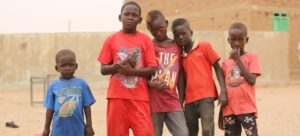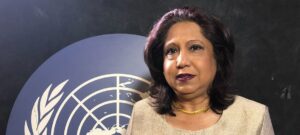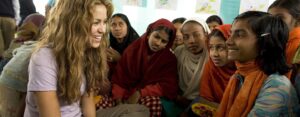Mr. Guterres has also asked UNRWA head Philippe Lazzarini to swiftly investigate and any employees found to have taken part in or “abetted what transpired” in the brutal attacks by Hamas and other Palestinian militants that day to be fired and referred “for potential criminal prosecution”.
“The Secretary-General is horrified by this news,” Mr. Guterres’ spokesperson, Stéphane Dujarric, said in a statement issued on Friday morning in New York, noting in the regular Noon Briefing in New York that the UN chief had been told about the allegations by the UNRWA Commissioner-General “earlier this week”.
UN_Spokesperson
Urgent independent review
An urgent and comprehensive independent review of UNRWA will be conducted, the statement added, a move announced on 17 January.
The UNRWA chief said information had been provided by Israeli authorities of the alleged involvement of some agency staff members.
“To protect the agency’s ability to deliver humanitarian assistance, I have taken the decision to immediately terminate the contracts of these staff members and launch an investigation in order to establish the truth without delay,” Mr. Lazzarini said.
“Any UNRWA employee who was involved in acts of terror will be held accountable, including through criminal prosecution,” he added.
He reiterated UNRWA’s condemnation of the terror attacks in the “strongest possible terms” and called again for the immediate and unconditional release of all Israeli hostages.
Betrayal of ‘fundamental values’
“These shocking allegations come as more than two million people in Gaza depend on lifesaving assistance that the agency has been providing since the war began,” Mr. Lazzarini said.
“Anyone who betrays the fundamental values of the United Nations also betrays those whom we serve in Gaza, across the region and elsewhere around the world.”
US halts new funding
The United States State Department said in response that it would temporarily pause new funding for UNRWA subject to the investigation into the allegations against staffers.
In a statement, spokesperson Matthew Miller said that there must be “complete accountability for anyone who participated in the heinous attacks”.
Josep Borrell, European Commission Vice President and High Representative for Foreign Affairs, also voiced serious concerns over the allegations of UNRWA staff involvement. In a statement, he called for “full transparency on the allegations and to take immediate measures against staff involved”.












